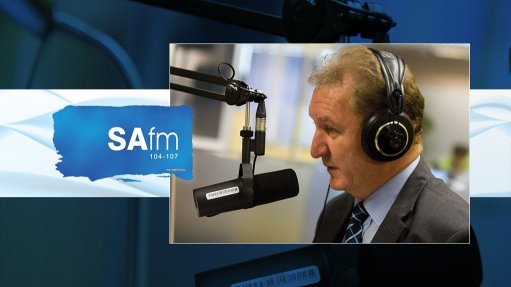
Every Friday, SAfm’s radio anchor Sakina Kamwendo speaks to Martin Creamer, publishing editor of Engineering News and Mining Weekly. Reported here is this Friday’s At the Coalface transcript:
Kamwendo: South Africa’s first electricity-from-the-sea project is under way in the Western Cape.
Creamer: This is at Hermanus and it makes use of wave energy. We have been thinking about that for a long-time, but it has always been regarded as too expensive. Now, this company is going ahead, Mean Sea Level. They are planning a pilot plant that will be ready by the middle of next year, which will be 1 MW.
From that wave energy they will power their abalone project, which produces about 500 tons of abalone a year. They are looking to going further than this, they want a commercial plant of about 3.5 MW and they believe that it will be very competitive with the price. They are talking about it being below R1 a kilowatt hour.
At the same time they have been funded by South Africa’s Industrial Development Corporation and also donors who provide funds to innovative clean energy producers in Africa. It is a father and son behind this, Pierre Hugo and Marius Hugo, with their company Mean Sea Level and they think it is going to really prove to South Africa that this is an economic way of producing electricity.
Kamwendo: South Africa is being urged to champion the electric car – to put an end the vast sums of money that leave the country to pay for imported petroleum.
Creamer: This call has been made by the former head of the CSIR Energy Centre Tobias Bischof-Niemz and he puts a compelling case. You just cannot argue against this. South Africa spends a fortune on fuel and that pollutes our air.
He is saying that we already have got electric vehicle technology, it is battery electric vehicle or plug-in electric vehicle and instead of importing all this oil, which costs us an arm and a leg and causes our inflation to rise and fall and we never know where we are, we should now take a step towards electric vehicles.
We can start off with even a plug-in electric vehicle then move to the battery electric vehicles and finally the fuel-cell electric vehicle is what he has in his vision, which is probably the superior one of all. He is saying to the tax authorities don’t look at the tax you can collect from that fuel, look at what it is going to save the country. He is also saying perhaps we can start with the taxi industry, where there is already a scrapping allowance.
When they scrap those taxis let the new ones be electric vehicles, because that should lower the operating costs of taxis. That should mean that taxi owners can lower the price to consumers, which will have a massive impact in South Africa.
Kamwendo: Mineral exploration in the Northern Cape is putting smiles on the faces of geologists.
Creamer: Yes, we have been somnambulant in the Northern Cape, but with the change of legislation and the removal of red tape, I must say recently geologists are starting to smile about what they can find in that Northern Cape.
They say it is hugely prospective and it probably is where parts of the highly geologically endowered Australia where in the 1990s, that is where we are now. We already see some investments starting in developing new mines there with the Gamsberg Zinc, which is Vedanta of India’s ploughing a lot of money in there.
We see the Australian-listed Orion ploughing a lot of money into the Prieska Zinc Copper Mine revival and also in the Kalahari Manganese field we see new players, which means that we now producing 30% of the world’s manganese.
Kamwendo: Thanks very much. Martin Creamer is publishing editor of Engineering News and Mining Weekly.